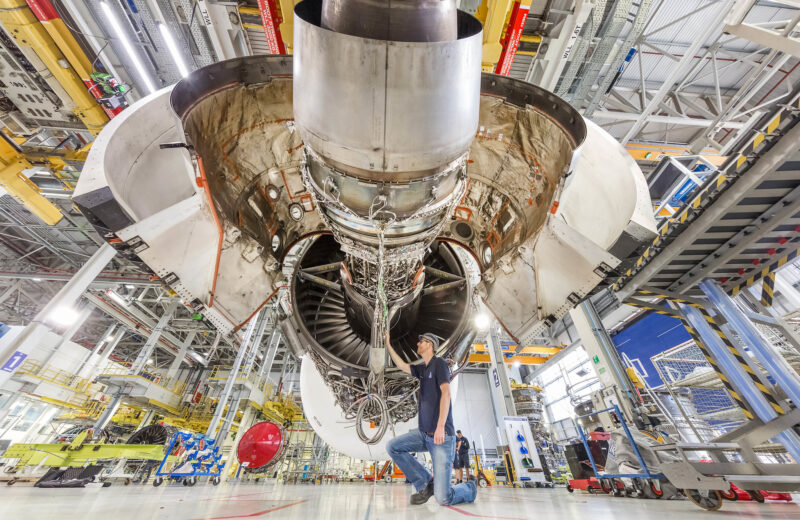Leading brokers say jet maintenance programmes add value

Engine and airframe programmes allow owners to predict maintenance costs with certainty. They do not need to worry about suddenly getting hit with a large workshop bill.
But the companies that sell the programmes – both aircraft and engine manufacturers as well as independents like JSSI – also claim that pre-owned aircraft that have been enrolled on programmes typically sell more quickly and for more money than aircraft that are not covered.
All business jets and all business jet transactions are different so it is hard to prove this using data (even if comprehensive data was available) so instead, in 2013, Corporate Jet Investor asked 30 leading brokers for their opinions on aircraft maintenance programmes.
The results were clear. Over 96 per cent of aircraft brokers would advise new aircraft buyers to enrol their business jet on either both an hourly engine maintenance programme and an hourly airframe programme or at the very least an engine maintenance programme.
“Generally it is a huge positive,” said Tim Barber, managing director at JetBrokers Europe, “and today you need to give the buyer reasons not to reject your aircraft.”
This sentiment was echoed by Don Dwyer, managing partner at Guardian Jet and a former vice president for Hawker Beechcraft’s Global Sales. “From a resale perspective, you should usually enrol your aircraft on both an engine and an airframe programme,” he said. “With so many aircraft on the market, we advise our customers to be the most prepared to sell as possible.”
For Jim Donath, founder of Donath Aircraft Services, enrolling your aircraft on an engine programme is not only a benefit to resale, but often, an essential part of it. “If a significant majority of that model’s fleet is enrolled in an engine program, then the market will perceive that an aircraft should be enrolled,” he said. “If it is not, most buyers will, at best, deduct the value of enrolment from the price of the aircraft; and at worst, disregard the aircraft altogether.”
Oliver Stone pointed to the Hawker 800XP business jet as an example of such an aircraft. “For an aircraft expected to be on an engine programme, its absence is a massive deduction to resale value and therefore, an enrolled aircraft has a much higher value than one that is not enrolled.”
Stone also concluded that it was not cost-effective to enroll a jet such as Citation V, which buyers would not usually expect to be enlisted on an engine programme.
Weighing-up the costs
A maintenance programme can be an expensive cost of aircraft ownership if you are lucky enough to have an aircraft with few problems. But it can also double up as a great insurance policy. “Often, new planes have minimal program costs,” says Stone. “In the first year or two, the hourly cost of an airframe program is small enough that it may as well be enrolled.”
“However, aircraft do not often break in the first years of ownership, and when they do it is typically covered by warranty. Typically, we tell people that it does provide peace of mind, and therefore as an asset designed to provide convenience to one’s life, it can be worthwhile. That being said, it is rarely financially worthwhile to do so,” he says.
“We usually discuss the advantages and disadvantages of both [engine and airframe programmes] and advise accordingly,” says René Banglesdorf, CEO of Charlie Bravo Aviation.
“Some of our clients self-insure with engines in an escrow type of arrangement (in cases where perhaps they are not using the aircraft the minimum 150 hours a year),” she adds. “This can then be applied to “buying-in” to a program should a buyer be interested in that. There are also products like JSSI’s engine insurance, which protects against unexpected expenses. The programme providers have become more creative in the last few years, which, as consumers, we all appreciate.”
Conan McGale, research manager at The Jet Business, believes the cost of maintenance can sometimes be made redundant by having your aircraft managed by a specialised company. “Certainly an engine maintenance program is worthwhile for the peace of mind, but it all depends on the client’s mission profile and scale of operation,” he says. “Some large corporate flight departments are so confident in their crew and maintenance, or replace their aircraft with such frequency, that they would rather take the chance on costly unscheduled maintenance events occurring than paying for a maintenance programme.”
“Typically a well-managed flight department can beat the prices on the airframe programs and it then depends on the company’s philosophy regarding self-insurance,” agrees Mike McCracken, president at Hawkeye Aircraft.
Corporate Jet Investor Members can access the full report here.
Questions answered by the report include:
- Do aircraft on engine or airframe programmes sell more quickly?
- Do airframe programmes add as much value as engine programmes?








